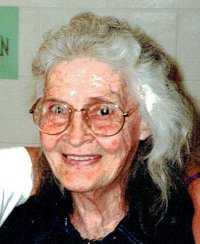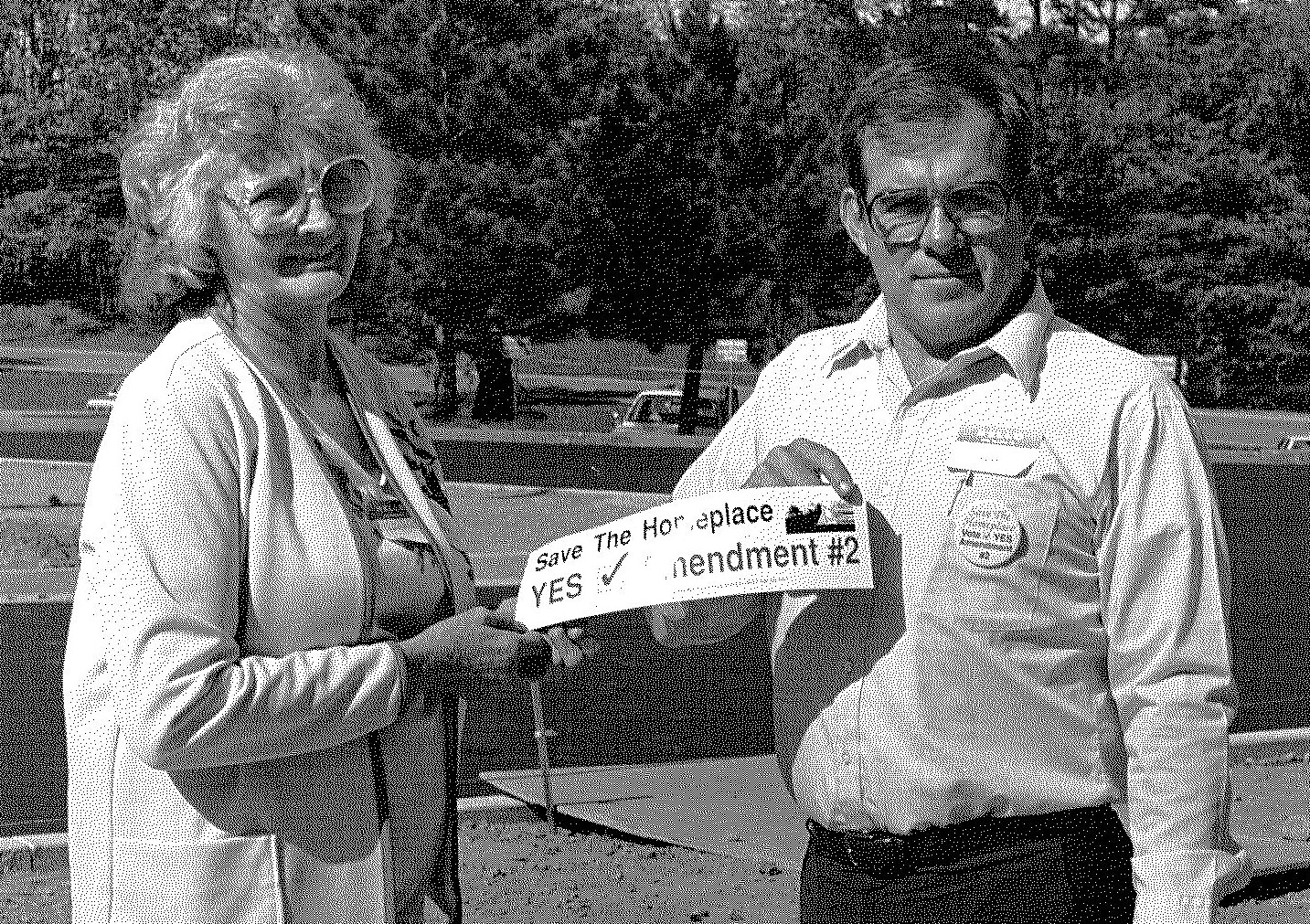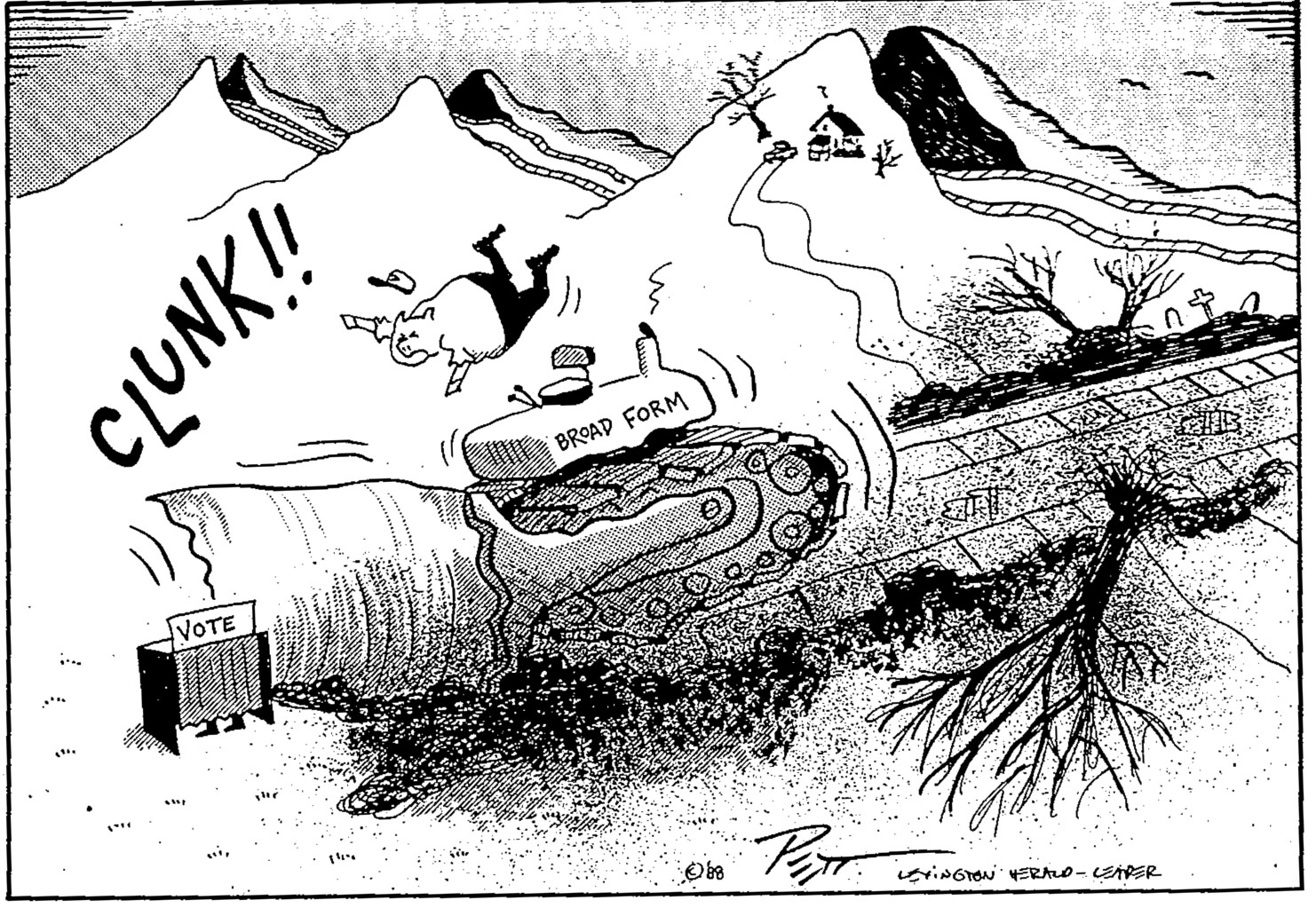Elizabeth Wooten, early KFTC leader, has passed away

Elizabeth Wooten, a KFTC member who helped lead the campaign in the 1980s to do away with the broad form deed, died on Monday. She was 91.
Elizabeth and her family fought for many years to protect their land from the strip mining that was rampant in Perry County. The book Making History: The First Ten Years of KFTC, included the following description:
On December 3, 1983, dozens of KFTC members rallied near Bulan at the farm of Perry County widow Elizabeth Wooten … to express their opposition to broad form deeds and their resolve to fight as long as necessary to end their abuses. The Wooten farm lay like a near island, almost surrounded by oceans of strip-mined land. The family had been fighting in court for months to keep Marandco Coal, holder of a broad form deed, off the property, where Elizabeth’s husband was buried. “Before my husband died, he asked [the family] not to let them come on here and strip mine,” Wooten said. “And we’re going to honor that promise. What kind of people would we be if we didn’t?”
With Wooten among the movement’s leaders, KFTC members helped passed a law in the 1984 General Assembly that outlawed the abuses of the broad form deed (these were deeds signed in the late 1800s / early 1900s that severed the ownership of the minerals under the land from the ownership of the land itself; in the 1950s the Kentucky courts interpreted these deeds to allow the mineral owner to strip mine the land without the permission of the surface land owner, and with no obligation to compensate for the damages done).
However, state officials decided not to enforce the law and continued issuing strip mine permits even when the mining company had not proved ownership or the legal right to mine.
 Elizabeth’s case in Perry County Circuit Court became a test case for the new broad form deed law. Marandco Coal had already sued the Wootens to keep the family from interfering with the mining of their land. With the new law in hand, the family quickly got a favorable ruling in the local court, with the judge also upholding the constitutionality of the new law.
Elizabeth’s case in Perry County Circuit Court became a test case for the new broad form deed law. Marandco Coal had already sued the Wootens to keep the family from interfering with the mining of their land. With the new law in hand, the family quickly got a favorable ruling in the local court, with the judge also upholding the constitutionality of the new law.
That case was appealed and eventually consolidated with a federal case involving other KFTC members using the court system to protect their land. Despite several lower courts rulings all in the favor of surface owners, on July 2, 1987 the Kentucky Supreme Court ruled that the 1984 broad form deed law was unconstitutional.
The Supreme Court, in a splintered and confusing decision, struck down the 1984 broad form deed law. Three judges ruled in its favor, three against. The seventh judge in a separate opinion, was silent on the constitutionality question but affirmed the ruling. (Making History)
The ruling devastated Elizabeth and KFTC members – and energized them. When the General Assembly met again in January 1988, placing a constitutional amendment on the ballot to do away with the abuses of the broad form deed (since the court’s ruling was the second law passed by the state legislature ruled unconstitutional) was KFTC’s top priority. Amazingly, the vote to do just that was unanimous in both the House and the Senate.
And the statewide vote in November 1988 to approve the broad form deed constitutional amendment was nearly as strong, with KFTC winning 82.5 percent of the vote statewide and carrying every county.
At a rally to support KFTC’s efforts, Elizabeth declared:
“As long as me and my 11 children live, they will never strip our land. They’re not going to win. We’re not going to lose. We’re winners. I’m proud to be a member of KFTC. It’s a strong organization and getting stronger, and we are going to stand in there. We’ll fight to the end.”

Recent News
Kentucky’s past legislative session showed alarming trend toward government secrecy
Churchill Downs takes more than it gives. That's why the Kentucky Derby is a no-go for me
‘We must never forget.’ Kentucky town installs markers for lynching victims.
Featured Posts
TJC Rolling Out The Vote Tour – a KFTC Reflection Essay
KFTC Voter Empowerment Contractor Reflection Essay
Voting is Power
Archives
- Home
- |
- Sitemap
- |
- Get Involved
- |
- Privacy Policy
- |
- Press
- |
- About
- |
- Bill Tracker
- |
- Contact
- |
- Links
- |
- RSS

